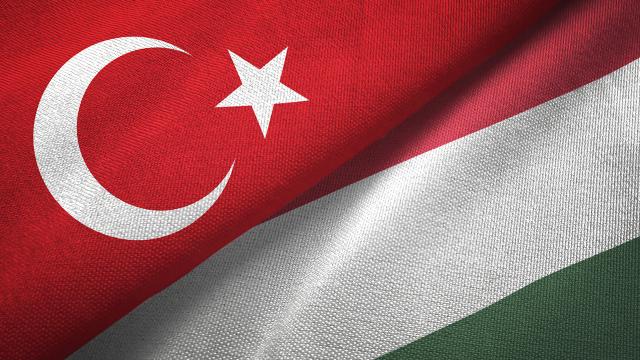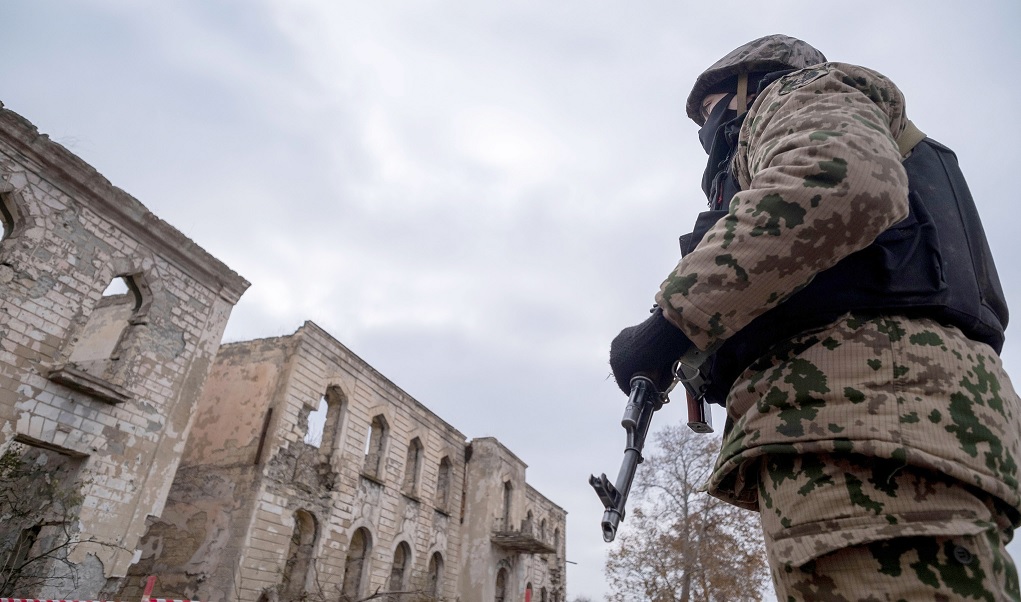TEPAV Foreign Policy Analyst
AVİM, 15 July 2011
The 16th anniversary of the Srebrenica massacre was marked on July 11, 2011. The remains of 613 victims were buried in the Potocari Memorial cemetery at a ceremony attended by thousands of people. The youngest of the victims was an 11 year old child and the oldest was
an 82 year old man. As is the case with all anniversaries of Srebrenica genocide, the negligence of the international community vis a vis preventing the Srebrenica massacre was called into question.
The 20th century came with the outbreak of World War I in Sarajevo. It ended with another war returning again to Sarajevo. The difference between the two is that the interest shown in the Balkans in 1990 was nowhere near as much as it was in 1914. The United States, Russia, the UK, France and Germany hardly did anything of substance to prevent the war which raged between 1992 and 1995 and did too little, too late to have it brought to an end in a short time.
The Bosnia war could not be stopped during the 3,5 years not because of a lack of power and opportunities but because of lack of political will. The westerners seemed outwardly they were trying to do something to stop it but in reality they left Bosnia and Bosniaks to destruction. Instead of stopping the aggression of Bosnian Serbs, they always viewed the developments through the perspective of a "humanitarian crisis." In other words, the westerners focused on the outcome of the war rather than getting down to the core of why this war broke out. The western countries generally lamented the slaughter of Bosniaks with tender statements but without doing anything concrete to stop the massacre. What is more, Bosniaks were deprived of their right to self-defense owing to the UN arms embargo.
Venezuelan diplomat Diego Arria who was at the helm of the UN Security Council between 1992 and 1993 has contended that the then Secretary General of the UN, Boutros Boutros-Ghali failed to properly apprise the Security Council about the atrocities Bosniaks were exposed to during the war. Arria said that the Security Council was in those years inclined to tar the assailants and victims with the same brush and therefore did not feel obliged to take action to preclude the humanitarian tragedy unfolding in Bosnia. The Special Reporter of the UN Human Rights Commission Tadeusz Mazowiecki who did his best to reflect the real face of the bloody wars in Bosnia onto his reports resigned from his post on July 27, 1995 to protest the tolerance shown for the Srebrenica massacre to take place. In the petition of resignation he submitted to the authorities, Mazowiecki said that crimes are being committed ruthlessly and rapidly and the response to all that by the international community is slow and inadequate.
The Srebrenica massacre is one of the most important incidents which cast a shadow on the performance of the international community during the Bosnian war. Srebrenica was declared a safe zone by the United Nations with the purpose of having civilian Bosniaks under the protection of the UN in the Bosnian war. In line with the UN Security Council resolution 836 dated June 4, 1993, the UN troops were granted the right to use force and even demand air support in the event of attacks on the safe zone or its environs. However, neither the number of UN troops deployed in Srebrenica nor the weaponry they were equipped with was sufficient to safeguard security in Srebrenica. It was believed that declaring a safe zone in the area so as to include Srebrenica and deployment of UN troops there would be enough to protect Srebrenica. This turned out to be huge mistake. The Bosnian Serbs who entered Srebrenica on July 11, 1995 turned the safe zone into a “secure death camp”. The UN, having remained almost a mere spectator in the protection of Srebrenica has come across as having tolerated this tragedy. With the fall of Srebrenica and Jepa, the operation of ethnically cleansing the lands to the eastern Bosnia which they called Republika Srpska was thus concluded. This naturally facilitated the partitioning of Bosnia among the belligerents, hence the reaching of a peace agreement. The international community which previously stumbled over amateurishly in having a deal clinched is believed to have perhaps turned a blind eye
deliberately for this outcome to emerge. This would also strip the UN of its responsibility to protect such safe zones as Srebrenica and Jepa.
However, the possibility that the Bosnian Serbs could carry out a genocide in Srebrenica was ignored. In fact, a confession to the tune of what we have just said was contained in a report commissioned by the UN 4,5 years after the Srebrenica massacre. Released on November 15, 1999, the report said that the UN committed a lot of mistakes in Srebrenica, acted with a lack of foresight regarding many of the developments and failed to provide adequate protection to the people of Srebrenica. So long as all the facts pertaining to what happened and how in Srebrenica are kept in a grey zone, international law and justice will be tarnished with a shadow dangling over it.
© 2009-2025 Center for Eurasian Studies (AVİM) All Rights Reserved
Henüz Yorum Yapılmamış.
-
SİYASİ KRİZ İÇİNDE ARNAVUTLUK
Erhan TÜRBEDAR 05.05.2010 -
SLOVENYA’DAN HIRVATİSTAN'IN AB ÜYELİĞİNE YENİ ENGEL
Erhan TÜRBEDAR 24.07.2012 -
EYUP GANİÇ’İN TUTUKLANMASI: BOSNA SAVAŞINI HATIRLAMAK
Erhan TÜRBEDAR 10.03.2010 -
MAKEDONYA’NIN AB ÜYELİĞİNE BULGARİSTAN ENGELİ
Erhan TÜRBEDAR 08.11.2012 -
HİLLARY CLİNTON BALKAN GEZİSİNDE
Erhan TÜRBEDAR 31.10.2012
-
MEETING OF ECO (ECONOMIC COOPERATION ORGANIZATION) COUNCIL OF MINISTERS
Numan HAZAR 01.02.2013 -
SIRBİSTAN’DA BULUNAN TOPLU MEZAR ÜZERİNE
Erhan TÜRBEDAR 13.05.2010 -
 HUNGARY-TURKEY RELATIONS - 24.05.2022
HUNGARY-TURKEY RELATIONS - 24.05.2022
Zoltan EGERESI 24.05.2022 -
 ARMENIAN EXTREMISTS ARE BLOCKING PEACE IN NAGORNO-KARABAKH - THE NATIONAL INTEREST - 22.10.2022
ARMENIAN EXTREMISTS ARE BLOCKING PEACE IN NAGORNO-KARABAKH - THE NATIONAL INTEREST - 22.10.2022
Maxime GAUIN 24.10.2022 -
 THE 44-DAY WAR IN NAGORNO-KARABAKH - TURKISH DRONE SUCCESS OR OPERATIONAL ART? - MILITARY REVIEW - 08.2021
THE 44-DAY WAR IN NAGORNO-KARABAKH - TURKISH DRONE SUCCESS OR OPERATIONAL ART? - MILITARY REVIEW - 08.2021
Edward J. ERICKSON 08.09.2021


